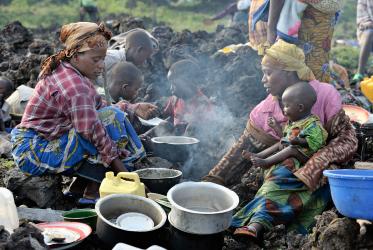Displaying 161 - 180 of 200
Faith at AIDS 2016: WCC preparing for faith in action
10 March 2016
Tveit on the “Ten Commandments” of food
26 January 2016
New video presents Ecumenical Advocacy Alliance’s call to action
13 January 2016
Consultation considers right to food in context of climate change
15 December 2015
Person with disability shares reflection on AIDS conference
10 December 2015
COP21: how climate change affects access to our daily bread
09 December 2015













